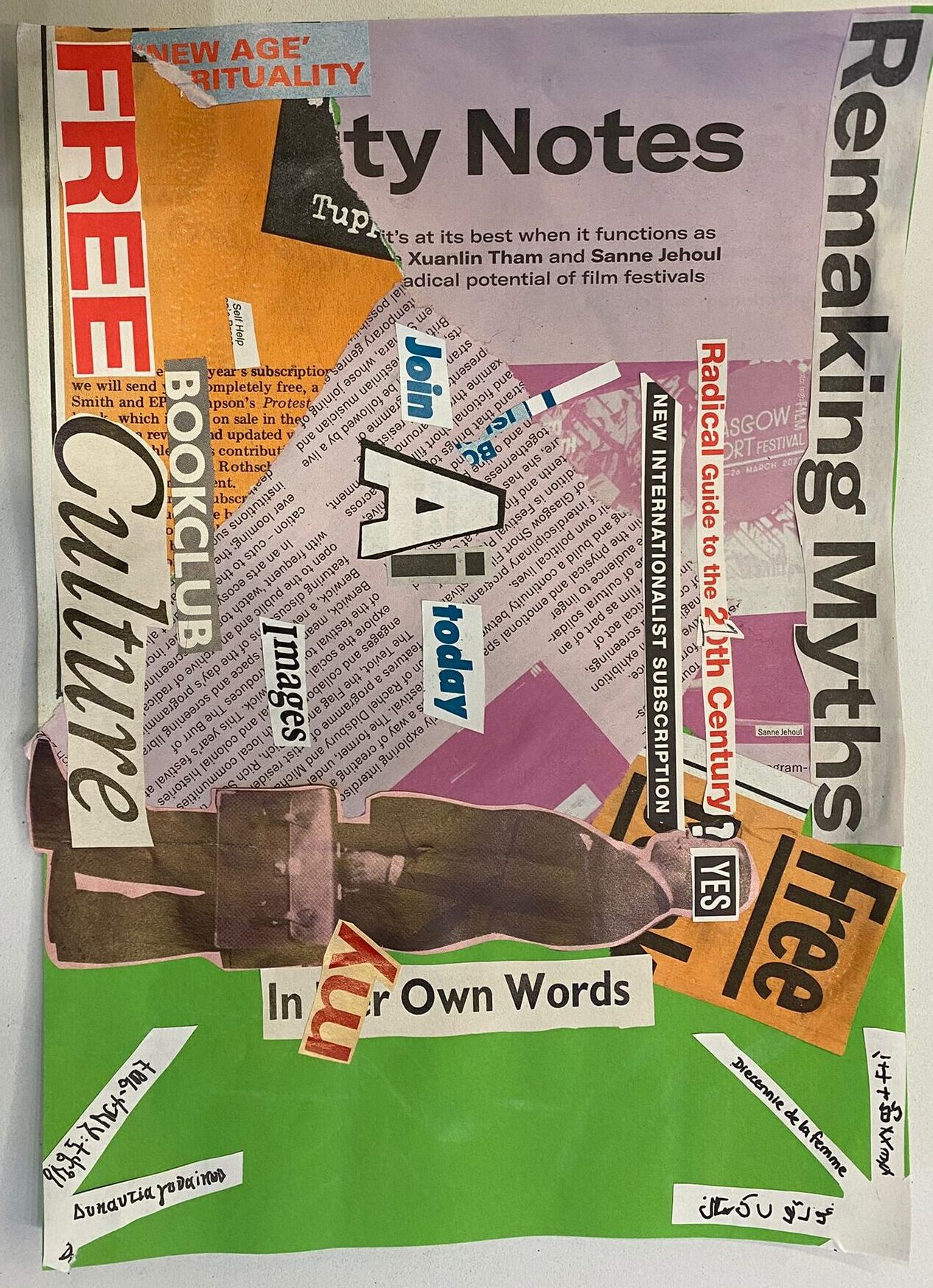Guide to AI: Knowing your rights
HOME > RESOURCES & TOOLKITS > THE YOUNG WOMEN’S MOVEMENT GUIDE TO AI > HELP & RESOURCES

Help & resources
Knowing your rights
TL;DR
It’s illegal to share intimate images without consent in Scotland and the UK, including AI-generated ones. However, creating such images isn’t yet explicitly criminal. Efforts to update legislation are ongoing but no specific law currently covers this in Scotland.
This section focuses on Scots Law and is intended to give you an overview of the law – if you require specific legal advice you should contact a qualified solicitor, or your local Citizen’s Advice Bureau may also be able to assist you. You can also find organisations who offer support in our signposting section.
How does the law protect young women from harmful use of AI?
You might have some questions about how the law protects young women from harmful use of AI. While it may seem like a rapidly developing technology, there are some pieces of existing legislation that can offer you protection.
One key question you may have is how does the law protect us when harmful images are created with AI? Creating an AI image of someone is not a specific criminal offense. However, legal action can be taken if an AI generated image infringes on copyright, breaches data protection laws or is defamatory. This may be through criminal or civil proceedings depending on the circumstances. For example you may be able to apply to court for financial compensation if someone created and shared an AI video or image of you saying something offensive that caused serious harm to your reputation.
In Scotland, section 2 of the Abusive Behaviour and Sexual Harm (Scotland) Act 2016 (“the 2016 Act”) makes it a criminal offence to “disclose or threaten to disclose a photograph or film which shows, or appears to show another person in an intimate situation.” The 2016 Act made nonconsensual imitate image abuse a crime in Scotland. This means that it is against the law for someone to share an intimate photograph or video of you without your permission – even if you shared this image with them consensually. Anyone who does share or threaten to share such an image could face up to 5 years in prison. In the year 2024-25 there were 770 crimes recorded under section 2 of the 2016 Act.


In Scotland, the sharing of sexual digital forgeries (commonly known as “deepfakes”) would typically fall under this law. The 2016 Act specifies that sharing altered photographs or films that show another person in an intimate situation would be an offense. Although this does not specifically address the use of AI or other software for such purposes so there is no data available to determine if any of the recorded crimes in 2024-25 involved the sharing of sexual digital forgeries.
It is worth highlighting that, in England and Wales, the Online Safety Act 2023 inserted new offences to the Sexual Offences Act 2003 (“the 2003 Act”), one of these being sharing or threatening to share intimate images, including computer generated altered images, without consent. This replaced the previous legislation which came into force in 2015 but did not specifically address altered images. Similar legislation exists in Northern Ireland it is not clear whether or not AI generated images would be covered.
While sharing sexual digital forgeries is covered by the 2016 Act (and the 2003 Act), the creation of these images is not a specific legal offence. If someone created an intimate image of a person under the age of 18 this could potentially be an offence under existing laws related to indecent images of children. A Bill was introduced to the House of Lords in 2024 to make the creation of such images a criminal offence under the 2003 Act, however the proposed law would only apply in England and Wales.
This shows where there is a gap in the legislation currently and highlights that more can still be done to protect young women from the harmful use of AI. There have been discussions in the media and among politicians around the introduction of an offence of creating a sexual digital forgery but there has yet to be a bill proposed to the Scottish Parliament to facilitate this change in the law.
Template to email your MSP
You can email your local MSP to let them know you want change on this issue. We have included a template to help you however you can customise it with your own message.
Dear [Insert MSP’s Name],
I am writing to urge you to support The Young Women’s Movement’s call to advocate for all Scottish people’s rights in the current AI technological landscape as an elected official representing [insert name of your constituency] and its citizens. This is a vital issue that requires urgent action to ensure that our rights and voices as affected individuals are not continuously ignored in favour of accommodating the development of AI technology.
The rise of AI-powered technology concerns us all. It facilitates malicious acts and indiscriminate digital crimes, such as the non-consensual creation and distribution of artificial intimate images or technology-facilitated gender-based violence. Research shows that 90%-95% of artificially manufactured images are non-consensual and pornographic, and approximately 90% of those are constantly being generated by exploiting women’s bodies without consent. This issue seriously affects young women, with further research revealing that 77% of girls and young women (ages 7-21) in the UK experienced online harassment within the past year. This report also found that women are reportedly less familiar with generative AI tools, inferring that improving women’s AI literacy could reduce the AI gender gap, which is why The Young Women’s Movement created their Guide and the campaign I am currently endorsing. Now, it’s your turn to make some changes.
Our demands
The Young Women’s Movement has three key demands, which I would like for you to consider:
- Government policy must protect young women and girls from the harms of AI by ensuring that there are stricter rules and repercussions for both the creation and sharing of non-consensual intimate images. Policies must be trauma-informed, taking victim experience into account, and flexible in their approach, to reflect the fast-paced nature of technological advancements in this area.
- Technology creators must be held responsible for ensuring that robust safety measures are included in the building of AI systems and guarantee the inclusion of efficient and effective reporting methods. Technology platforms must prioritise the safety of their young women and girl users by taking accountability for harmful content, committing to the removal of NCII and promoting a culture of care.
- We, the general public, must not be blind to the harms of AI on young women, girls, and others. We must ensure that children and young people have a comprehensive understanding of AI and are taught to think critically about these systems. We must also demand a change in culture by providing preventative education on NCII, ensuring that perpetrators face appropriate consequences and that victims are supported to not feel alone.
I urge you to reconsider how AI has significantly advanced online harassment and non-consensual intimate image sharing, which has drastically affected people all over Scotland, but especially young women and girls. As it stands, current legislation is not strong enough to protect nor support victims of image-based abuse. I am adding my voice to the push for change, and I ask that you do the same.
The Young Women’s Movement is calling on all MSPs and the Scottish Government to account for the above demands and to invest in policies to help regulate AI technology and its misuses, so that all Scottish citizens may be lawfully protected from the fast-changing technological developments that enable the harm done by certain publicly available AI tools. We call for a reimagining of Scottish citizens’ rights, informed by a critical and intersectional stance, so that the law may protect those who have been made most vulnerable to the spread of generative AI. For more information, please visit: youngwomenscot.org/guide-to-ai.
I look forward to your response and to hearing how you will support this crucial issue.
Best regards,
[Your Name]
[Your Contact Information and Full Address (needed to verify your constituency!)]